- Home
- Rose Tremain
The Cupboard Page 2
The Cupboard Read online
Page 2
‘Please turn towards the lamp, just a fraction,’ Ralph asked.
The head moved. Behind the thick glasses, the eyes were grey, like polished stone. Ralph took the picture.
When the wine was gone Ralph prepared to leave, but Erica handed him a box of matches and said, ‘It gets cold in here. Light the gas fire for me, will you dear, and then we won’t feel it.’
It was a very old-fashioned kind of fire, made of light brittle tubes which eventually glowed red. Ralph knelt and held his hands out to it.
Erica sat in silence for a while and then she said: ‘The cupboard I mentioned was my mother’s. She used to keep her clothes in it – the long skirts women wore in those days and the embroidered blouses. She did all the embroidery herself. And you never caught her looking shabby. Blue was her colour and her hair was blonde. I think the cupboard had been her mother’s before, because it was the only good piece of furniture we had. And she kept it polished. Not like the old kitchen table which we scrubbed with soap.
‘I was eight years old when the cupboard came to be mine. My father took it almost to pieces to get it out of their room and rebuilt it in mine. He knew he couldn’t part with it because it was in the family, but he didn’t want anything left in his room to remind him of her. I told him, I didn’t want the cupboard either. If you got in it, you could smell her, and the smell of her was both wonderful and unbearable. I spent nights in the cupboard holding her clothes over my face. I think I wanted to suffocate. Because, to be eight and to lose her was terrible. And not to know why, you see. Only to be told: “The bull kicked her. The bull was angry and kicked your Ma and she’s dead.” That was all: “the bull kicked her and she’s dead.” Because they couldn’t tell me, you see, Ralph. I was eight years old and it was their grown-up secret. They did it each year for eight years and in all that time the calves born to their cows were strong and healthy and fetched good prices, and their love was the same, I suppose, strong and good and there for all to see.
‘But some years later, I found out what they did, from Father’s diaries. And if she hadn’t died, then I would have laughed, because there was a wonderful madness in them. I can remember the kind of thing I read in those diaries. I can remember how he tried to describe it:
“Did the bull today,” he’d put.
“Better than last year. Last year my Ellen dressed herself in red but this year all in blue and lay down as usual in the forget-me-not-field.
Haggard’s bulls are fine. Of exceptional size. Bull not attracted at once by Ellen’s waving blue skirts so she calls it. And it comes lolloping. It noses her and she laughs. She begins whispering our fertility rhyme. The bull is on top of her and she strokes it. Then she shouts to me and I open the gate to the cow’s field. The bull almost runs and together we shut him in. As he mounts a cow, Ellen kisses me. She is hot and trembling.”
‘A game, you see! They played it each year for their land. The land was all they had and they gave it their own desire. Each year she’d played with the bull while he watched her and waited to open the gates as the bull came to the cows. And every year the calves born were strong, until the year of my eighth birthday, when the bull trampled her to death.
‘So you see, by the time Gully came, she was gone. I was nine when we found Gully and he moved into the room in our attic.
‘When Gully came, my father woke up from his mourning and saw that everything was neglected. He seemed to wake up all of a sudden and start mending things. He’d get up at five and work till dark. I was very thin because we didn’t eat well. The vegetables weren’t planted for one whole year and horseradish took over the patch. We had eggs of course and I expect the fresh eggs and the milk kept me alive. We had a rabbit or two and cheese sometimes, if he’d made any, and fruit in the summer. And fresh air. Often, when I remember those times, I think that we lived on the air.’
When Ralph returned to his hotel in Harrington Gardens, he walked down his corridor to a machine which dispensed miniature bottles of gin, whisky, brandy and vodka. He paid for a little bottle of whisky and walked quickly back to his room. He poured tap water into the whisky and sat down at the narrow teak desk which, apart from an extraordinary polished clothes-stand and an armchair, was the only extra piece of furniture the hotel provided for the price of the bed.
He rewound the first tape and switched it on.
‘I don’t know where you want me to start,’ he heard Erica say. Ralph smiled because, once started, she had talked without stopping, her memory seldom letting her down. He switched off the machine. He had expected to find her frail, forgetful. He had had a bad time persuading Walt that she was worth company time.
‘You see old people, Ralph. They’re no good for this kind of thing. They’re sentimental as hell. Especially women. And Erica March? Who cares? She was a name in the forties and fifties, but who needs her now?’
‘It’s worth it, Walt,’ Ralph had insisted. ‘No one else has done anything about her for years, and she’s gotta die soon.’
Walt complained about the month Ralph asked for.
‘Jesus! You got a girl in London, or what?’
‘No, Walt. It’ll take that long.’
‘Okay, kid. But if the old lady’s senile, you chuck it and come on back. You hear?’
Remembering Walt, Ralph took out a piece of hotel writing paper from the desk drawer and began: “Dear Walt …” But he got no further. He sat back and yawned, remembering that on his only other assignment in London he had felt tired all the time, oddly undernourished despite the meals he had bought himself. It had been a depressing assignment, loosely titled ‘Research into why Americans are universally disliked in Europe’ and involving Ralph in a tour of Europe’s capital cities in which he had tried to put the question ‘Why are Americans universally disliked in Europe?’ into idiomatic French, Dutch, German, Spanish, Italian, Portuguese, Serbo-Croatian and Greek.
It had been a Frenchman who had pointed out to Ralph that the word ‘universally’ was inappropriate to his question, indeed utterly misleading, and that when he moved on to his next questionee he would do better to leave it out. Yet while on his London stretch of his ‘Why are Americans?’ assignment, no one – not even Ralph himself – had noticed the redundancy of the word ‘universally’, and it had therefore travelled with him to France.
What London had done for Ralph, however, was to seem to confirm the hypothesis that there did exist a dislike of Americans, but that hardly anyone could say why it existed or when it had begun. A lot of people of course had said that Americans weren’t disliked at all and where on earth had Ralph got his silly idea. They went on to stress that most Americans (“I mean, gosh, take Robert Redford as an example!”) were courteous, hospitable, generous, articulate and quite often handsome, and that never, never should it be forgotten that they were the saviours of Europe twice in her blood-soaked history. But Ralph noted that when he encountered this kind of answer, he tended to disbelieve it and felt reluctant to write the answer down.
His final report to Walt on the ‘Why are Americans’ assignment had made isolationist reading. It had been filed discreetly in the Bulletin Worldwide basement and never used.
The possibility that the work Ralph intended to do with Erica March would end in a drawer marked ‘English novelists. F. Biographical Data’ depressed him. It won’t happen, he told himself, just as long as she doesn’t die.
‘After my mother’s death,’ she said, ‘I was obsessed by funerals. Hers was so terrible, so utterly solemn, that I didn’t dare weep till the flowers flopped down on her but then I thought oh no! I wouldn’t like that! Oh heavens, no! Not all those flopping bundles of wet flowers on top of me. And I started to scream and I suppose someone had to take me away.
‘But then, if an animal died – a piglet or a gosling – I buried it with my trowel and cut things from the hedgerows like hips or blackthorn to put on the grave. And I said all kinds of dreadful prayers in rhyme like “Oh God this piglet take, though it will
never wake.” And one day, I took down the fly-paper from over the kitchen table and picked off all the sticky dead flies and put them into a box and I buried the box in the muck heap because I knew flies like manure and would feel at home there in their after-life. And for some months after this, I always had a flies’ burial, and I stuck stones into the muck with the number of flies I had buried written on them, like “August 20th, 1901. Seventeen flies” and “September 30th, 1901. Twenty-two flies.” It was very macabre, wasn’t it, and strange? Especially when I had so hated my mother’s funeral. I daresay I wanted everything dead to suffer what she had suffered – the terrible service with the white flowers and the mumbled prayers.
‘But do you know something strange? When I met Emily, my friend who died in 1913, she told me that when she’d been a child she’d found death very satisfying and romantic and had once buried some flies.
‘We laughed and laughed and I told Emily about the muck heap and all the other graves of dead things littered around the farm! But life is so odd, Ralph, don’t you think, because the next funeral I went to was hers. And I expect you’ve seen pictures of this, haven’t you? Of the carriages, and all of us in white with our sashes and our purple and orange flowers, and the great crowd. It was the most gilded funeral of its time.’
It was early afternoon in Erica’s room. Next door, in the small bedroom, Mrs Burford was hoovering. A squat woman of fifty with unlined skin, Mrs Burford had given Ralph the scant greeting that was all she could ever find in her for strangers and warned him bluntly: ‘She’s tired today.’
Erica wasn’t wearing the scarf, and without it, her serenity had gone. The head with its dusting of white down was at once repulsive and faintly comic. There was a scab on the crown of her head which her bent hand touched from time to time. Ralph sat down and waited. But she couldn’t speak. Not today. Did you imagine, said her limp gesture of dismissal, that we old people are the machines of history? Don’t you understand that we very often forget?
He turned up the next day and she was refreshed. She wore a red silk turban.
‘And what dreams, Ralph!’ she said before he had closed her door, ‘of a town that I’ve often seen somewhere in me and it was that town I tried to write about in The Hospital Ship, where the people come running because the scent of the air is so wonderful and they go helter-skelter down the white streets and they find camellia trees, taller than pines. And of course they want to bag all the vacant houses and put up notices saying “Private Property. Keep out.” They want to possess the town and breed in it and put down their pale roots into the soil. And only after a while do they find that the roots keep pushing through the earth twisting and growing and burrowing through the foundation of the white houses till the houses begin to crack and splinter and the roots start coming up again through the floors, tiny white growths at first, like capillaries, then wider, fleshier, stronger, coiling round the furniture and round their feet … Oh yes! I often take myself to this town. When I’m tired, my mind spends whole nights there, being a silent girl with limbs that can climb the camellia trees, and from high up watching the struggle of the Rooters and rocked to sleep by the flowers.’
‘I remember the Rooters,’ said Ralph.
‘Do you? They became very pale, didn’t they, with their own struggles? The sun shone on them but their struggle to be normal was so great it made them white with pain. And the pallor of the Rooters, you know, was inspired by someone I knew, my Uncle Chadwick who was the palest man – the palest human being – I’ve ever seen. And I remember my father saying to Chadwick once: “With your money, Chadwick, I don’t know why you don’t go on a cruise!”’
Erica laughed and leant back in her chair. ‘Chadwick was what people used to call a “card”. He lived in a style we never dreamed of, with books in glass bookcases and meals at his club. He was quite well known in his day: Chadwick March. He was compared to Oscar Wilde and really in many ways he was very like Oscar Wilde except that he wasn’t as witty, not by a long chalk, and he never went to prison, because he was a discreet man who never had love affairs with sons of Marquesses or anyone like that who might make trouble.
‘His plays had ghastly titles like The Fortunes of the Honourable Avis Brimstone and The Weathering of Lady Winchelsea, and they were all about the aristocracy, of which he definitely wasn’t one! He’d started out as a vicar, but I suppose he must have gone too far with the choirboys because the Church didn’t keep him long, and I remember him arriving at our house the summer before my mother died and sobbing. And I thought, I can’t imagine why he’s crying (grown-ups didn’t usually cry like that) unless he’s hurt himself very badly, and I waited to see whether any of his blood would run out under the kitchen door, but it didn’t.
‘I grew very, very fond of Chadwick when I was older. I don’t think he ever did go on a cruise, but he sometimes came down to our house for a kind of holiday, and I used to go for walks with him and he’d talk about London. He was very restless. Sometimes he’d announce after supper: “Think I’ll just go and see what’s to do in the village,” and off he’d go, off into the night, full of excitement, as if he expected to find travelling players or young members of the Garrick. But of course he never did! All he found were the cottages in darkness and a few ducks on the pond and a signpost pointing three ways. But he never seemed to be put off. He went time and time again to the village, even on winter nights, and I suppose he just walked about in the silence till he felt tired, and then he’d come home and say: “Nothing much doing tonight. Bit quiet in the village!”
‘He was a terribly quiet man. Gully was afraid of him at first because he looked so strange in his London get-up, as if he’d come out of another world from the one we knew. But then in time, he won Gully over. He told him made-up stories and tried to help him with his school work. The only time in my childhood that Chadwick was angry was when Gully told him that at Christmas the vicar came to our school with nuts for all the children, and he’d throw these nuts onto the floor of the schoolhouse and laugh as we children scrabbled about trying to pick them up. This made Chadwick very, very cross. He said that a man who didn’t treat children with dignity deserved to be hanged. And he tried to make my father take us away from elementary school and employ a governess for us instead, but we knew this wouldn’t happen. The money just wasn’t there.
‘I suppose I ought to describe Chadwick. He was my father’s brother, but he was nothing like my father. They were Jacob and Esau: one hairy (my father) and one smooth (Chadwick).
‘Not, of course, that there was any question of one of them trying to trick his way into some silly inheritance, because there was no inheritance, only the farm which had been left to my mother by her mother and then to my father when she died, and then to me. And Chadwick was rich. He got rich very quickly with his plays. He had a terribly slow walk, I remember. You had to keep pulling him along and this was irritating. But his hair was a wonder! It was parted in the middle and grew in ripples. His eyes were round and blue, and when I was older, I understood that his heart was rather like his eyes, always darting about in search of love.
‘Gully once told Chadwick that when he grew up, he wanted to be a Red Indian. And instead of laughing, Chadwick said: “Well, better build a tepee, eh?” And they went for a walk along the boundary of the farm and cut sticks from the hedges and began to build their tepee on the grass outside the kitchen window. The structure was very good, very professional, but the skin was hopeless. They tried to sew together pages of the Illustrated London News (Chadwick always brought us back numbers of this when he came to stay), but in the night the wind came and scattered them and bits of the Death of Queen Victoria Souvenir Issue went flying up onto the haystack.
‘I don’t know where Gully got this idea about becoming an Indian. It was long before the time of the great Western films. Perhaps there was a drawing of a Red Indian in our geography book or in a children’s atlas. Chadwick pretended to take it seriously, anyway: I remember him sittin
g in the ruined tepee, with a few shreds of the Illustrated London News flapping on the frame like vultures, and saying to Gully: “If you’re going to be an Indian some day, you’ll have to watch out for your white skin. Because the white man inside his white skin will come plundering, and give you worthless things for your land and try to talk you out of doing your rain dances. So you watch out for him, your white man enemy, and never let your arrow sleep.” Gully was baffled, of course. But years later, he said to me: “I got that straight now, Erica – what your Uncle Chadwick was on about. He said there’s more ’an one side to a person and yew never can tell what the one side might do to the other. And in ’imself he had two sides an’ they were never at peace, not what you’d call peace. I’nt that right, girl ?”
‘Gully was a butcher by that time!’
*
In his hotel room, Ralph had copies of Erica March’s three novels: The Two Wives of the King (1921), In the Blind Man’s City (1945) and The Hospital Ship (1954). He had read them all, but he planned to spend some of his spare time in London reading them again. But he hadn’t begun yet. He had given his evenings to what he called his Summary; he wrote very little down, yet promised himself he would write more. He sat in silence in the half-empty dining room, where bland, uninteresting food was served by disdainful waitresses in heavy shoes.
He was bearded and rather pale. His hair was black and wiry. He was shorter than he might have been because of what his family referred to as ‘The Tennessee Incident’. The Tennessee Incident had occurred when Ralph was fourteen. On holiday with his Grandma while his parents travelled in Europe, he had fallen in love with the only girl ever to come near the lonely ranch house where his grandmother lived in aged and defiant isolation – her coloured maid. She was called Pearl. Her father had been an errant English colonel. Her skin was amber. Ralph lay sleepless in his high, soft bed and dreamed his first dreams of a woman.

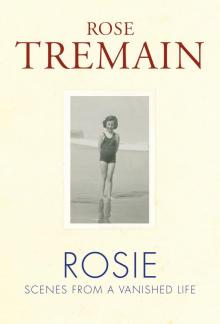 Rosie
Rosie The Garden of the Villa Mollini
The Garden of the Villa Mollini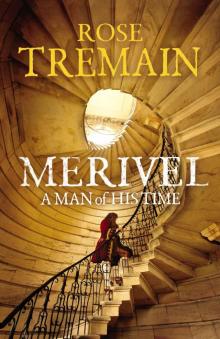 Merivel: A Man of His Time
Merivel: A Man of His Time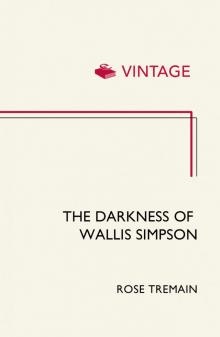 The Darkness of Wallis Simpson
The Darkness of Wallis Simpson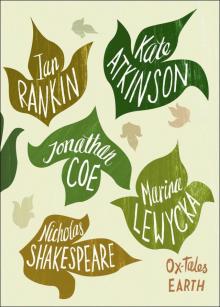 Earth
Earth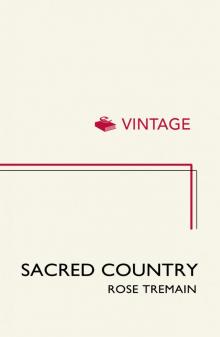 Sacred Country
Sacred Country The Swimming Pool Season
The Swimming Pool Season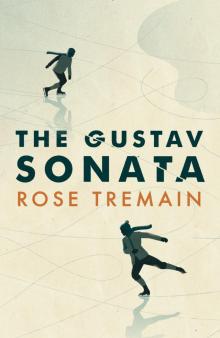 The Gustav Sonata
The Gustav Sonata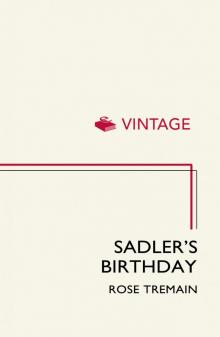 Sadler's Birthday
Sadler's Birthday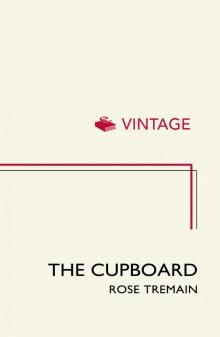 The Cupboard
The Cupboard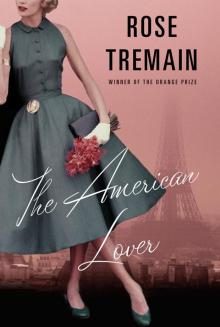 The American Lover
The American Lover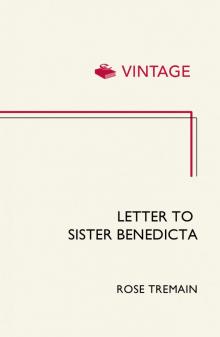 Letter to Sister Benedicta
Letter to Sister Benedicta Evangelista's Fan
Evangelista's Fan Restoration
Restoration The Road Home
The Road Home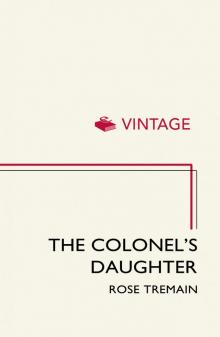 The Colonel's Daughter
The Colonel's Daughter The Way I Found Her
The Way I Found Her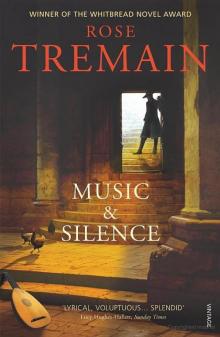 Music & Silence
Music & Silence